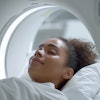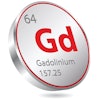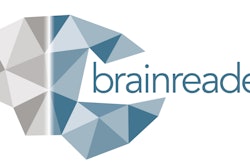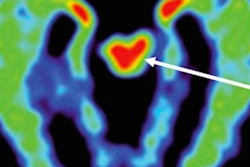A newly developed MR neuroimaging software program may be a boon for detecting Alzheimer's disease and other neurological conditions.
A study published online October 15 in the Journal of Alzheimer's Disease found that Neuroreader from Danish medical technology firm Brainreader is as accurate as traditional methods for detecting the slightest changes in brain volume in a fraction of the time.
The research was performed independently in Denmark and at the Medical College of Wisconsin, with both sites producing similar results, according to a release from IOS Press. The results validate the efficacy of Neuroreader for measuring hippocampal volume, a known biomarker for Alzheimer's disease. The U.S. Food and Drug Administration (FDA) has already cleared the software for assessing clinical volume on brain MRI scans.
Lead author Dr. Jamila Ahdidan and colleagues compared the results of 1.5-tesla and 3-tesla MRI scans processed by Neuroreader with those that were traced manually by expert anatomists and radiologists. When they measured the level of spatial overlap between Neuroreader and manual segmentation as the gold standard, Neuroreader on average was more than 87% accurate in its agreement with manual segmentation. It also performed the task in approximately five minutes per scan, compared with 30 minutes for manual segmentation.


.fFmgij6Hin.png?auto=compress%2Cformat&fit=crop&h=100&q=70&w=100)





.fFmgij6Hin.png?auto=compress%2Cformat&fit=crop&h=167&q=70&w=250)











